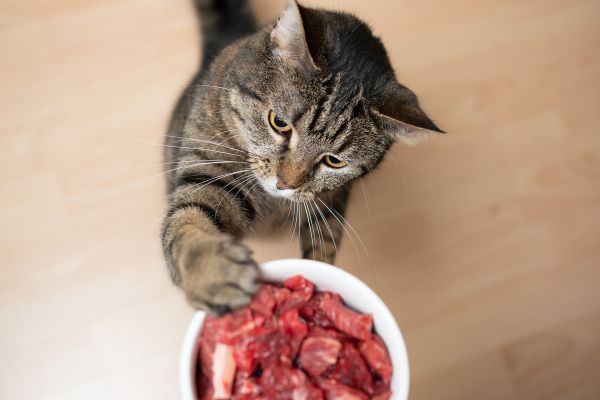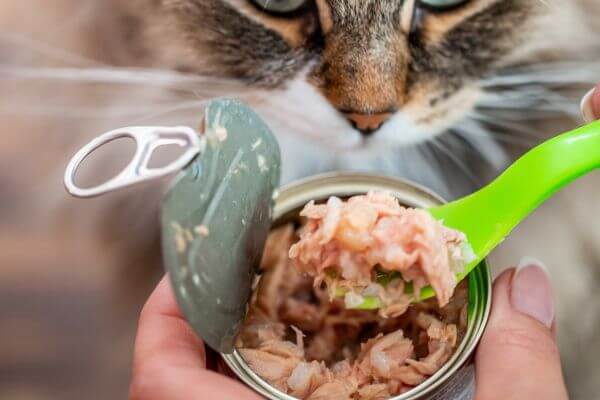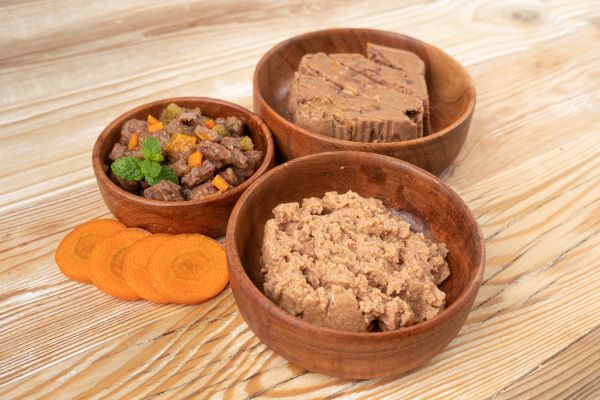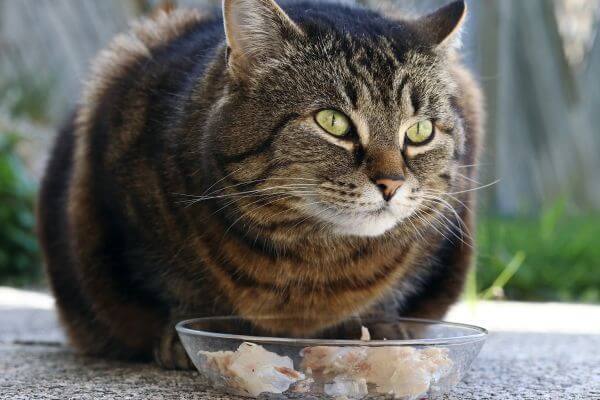Have you ever wondered if it’s possible to feed your cat without meat? In this article, we’ll explore the feasibility and challenges of vegetarian feeding for our feline friends.
Myths and Facts about Vegetarian Diets for Cats

Since time immemorial, meat has been considered the primary component of our feline friends’ diet. However, with the growing interest in vegetarian and vegan diets, the question arises: can our cats thrive without meat?
The first thing to consider is the carnivorous nature of cats. While dogs are omnivores, cats are strictly carnivorous, meaning their nutritional needs are quite specific.
However, this doesn’t necessarily mean that cats can’t benefit from a well-balanced vegetarian diet. With proper supervision and guidance from a veterinarian, it’s possible to find food options that meet the nutritional needs of felines without the use of animal-derived products.
One of the main myths surrounding vegetarian feeding for cats is that they need animal protein to thrive. While it’s true that cats require certain amino acids found in meat, these nutrients can also be found in plant sources such as soy and chickpeas.
Furthermore, it’s important to remember that many commercial cat foods already contain plant ingredients in their composition. Therefore, transitioning to a vegetarian diet can be smoother than imagined.
Balancing Act: Navigating the Vegetarian Diet for Cats

Another point to consider is the importance of supplementing the cat’s diet with essential nutrients that may be lacking in a meatless diet. Consider adding vitamins like taurine and minerals such as zinc and iron to your cat’s diet to ensure they receive all the nutrients needed for optimal health.
Fortunately, there are many supplements on the market formulated specifically to meet the nutritional needs of vegetarian cats. Consulting a veterinarian is crucial to ensure the animal is receiving all the necessary nutrients for a healthy and balanced life.
In summary, while the idea of feeding a cat without meat may seem unusual at first glance, with proper supervision and guidance from veterinary professionals, it’s possible to offer a vegetarian diet that meets the nutritional needs of our feline friends.
Always remember that each cat is unique, and what works for one may not work for another. Therefore, it’s essential to closely monitor the health and well-being of your cat when making any changes to its diet.
Tips for a Smooth Transition to a Vegetarian Diet
One of the keys to success when introducing a vegetarian diet for cats is to transition gradually. Start by mixing small amounts of vegetarian food with your cat’s traditional food and gradually increase the ratio over time. This helps prevent digestive upset and allows the cat to get used to the new taste and texture of the food.
Additionally, make sure to offer a variety of plant foods to ensure your cat is getting all the nutrients it needs. Vegetables such as pumpkin, carrots, and peas can be cooked and mixed with the cat’s food, providing a healthy source of fiber, vitamins, and minerals.
Finally, closely monitor your cat’s health and behavior during the transition process. If you notice any signs of discomfort or changes in appetite or behavior, consult a veterinarian immediately. And remember, the key to a successful vegetarian diet for cats is balance and moderation.
Benefits and Challenges of Meatless Feeding for Cats

When considering a vegetarian diet for your cat, it’s important to weigh the potential benefits and challenges. Potential benefits include reducing environmental impact and eliminating animal cruelty associated with the production of animal-derived foods. However, it’s essential to be aware of the nutritional challenges and the need for adequate supplementation to ensure your cat receives all the nutrients it needs.
One of the main challenges of meatless feeding for cats is ensuring they receive adequate amounts of protein, taurine, and other essential nutrients naturally found in animal-derived foods. Without careful formulation and adequate supplementation, cats may be at risk of nutritional deficiencies that can affect their long-term health.
However, many advocates of vegetarian feeding for cats argue that, with proper supervision and guidance from veterinary professionals, it’s possible to offer a balanced diet that meets the nutritional needs of felines without the use of animal-derived products. The key is to make a gradual transition, closely monitor the cat’s health, and be open to adjustments as needed.
Vegetarian Recipes for Cats: Delicious and Nutritious Options
For those considering a vegetarian diet for their cat, homemade recipes offer various options made with natural, healthy ingredients. A popular option is preparing a mixture of grains, vegetables, and plant proteins such as tofu or tempeh, cooked and mashed to create a palatable texture for felines.
Another creative idea is to prepare vegetable pâtés using cooked and processed vegetables, mixed with coconut oil or olive oil to add healthy fats to the cat’s diet. These pâtés can serve as treats or be incorporated into the cat’s main meals to diversify flavors and textures.
Additionally, it’s possible to find a growing variety of commercial vegetarian foods on the market formulated specifically to meet the nutritional needs of cats. These foods may contain ingredients such as soy protein, whole grains, and vitamin and mineral supplements to ensure a balanced and complete diet for your feline.
Final Considerations: What You Should Know About Vegetarian Feeding for Cats

In conclusion, the decision to offer a vegetarian diet for your cat is a personal choice that requires care, research, and proper supervision. While it’s possible to provide a meatless diet that meets the nutritional needs of felines, it’s essential to consult a veterinarian before making any changes to your pet’s diet.
Always remember that each cat is unique, and what works for one may not work for another. Therefore, closely monitor your cat’s health, behavior, and dietary preferences when transitioning to a vegetarian diet.
Finally, with patience and readiness to adjust, it’s possible to provide a healthy vegetarian diet for your cat. Proper guidance and diligent care can promote your cat’s long-term health and well-being.
In Conclusion: Vegetarian Nutrition for Cats – A Responsible Choice
When exploring the possibility of offering a vegetarian diet for your cat, it’s crucial to consider not only the potential benefits but also the challenges and responsibilities involved. While it’s possible to provide a meatless diet that meets the nutritional needs of felines, it’s essential to do so with care and proper supervision.
Therefore, we encourage all cat guardians interested in this approach to seek professional guidance from a veterinarian. Regular consultation with an animal health specialist can help ensure that your cat receives all the essential nutrients it needs for a long and healthy life.
Whatever your decision, always remember to prioritize the well-being of your cat. Be attentive to signs of health, observe your feline’s dietary preferences, and be open to adjustments as needed. With love, care, and attention, you can provide your cat with a diet that promotes its health and happiness for many years to come.